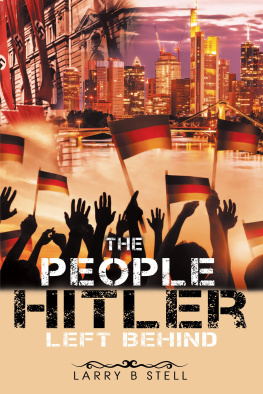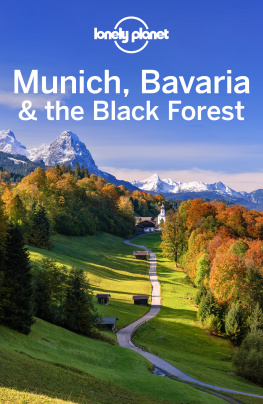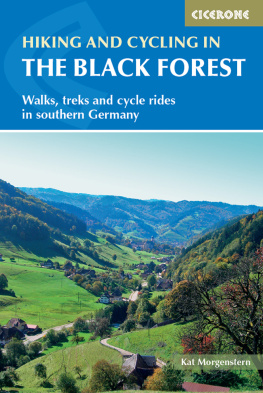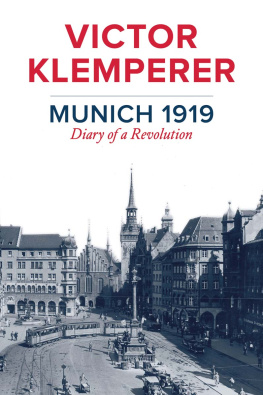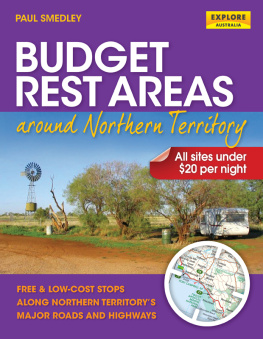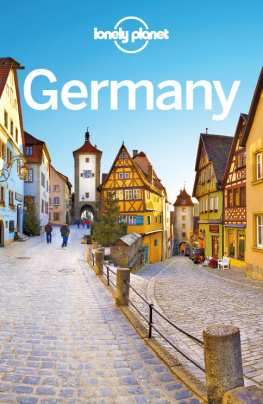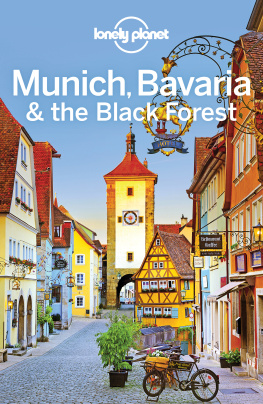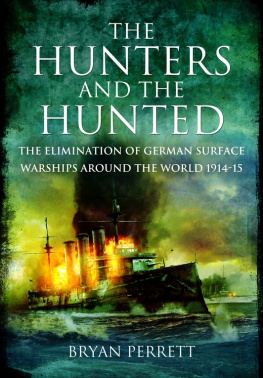I n 1955 I was in my sophomore year of the University of Arkansas, Monticello. My mother and father owned a soft ice cream parlor in Warren, only 15 miles from the university. I often worked there, relieving them both of the inactive winter months. Hot dogs, hamburgers, and barbecue sandwiches were served to enhance low sales of ice cream over the winter mo nths.
One day a young veteran came into the establishment and I learned he had spent two years in the occupation army of post II World War in Germany. I, knowing little about the German culture, except for anti-Nazi films, and what I had read, began to quiz this young man. I asked about climate, the people, drink, and food found in Germany. I also learned that he had married a German Fraulein, and brought her back to the United St ates.
The fascination I had for Germany was almost beyond description. I picked the veterans brain every day he frequented my parents business. The descriptions of the occupation army and American military visiting the various villages and war torn cities of Germany gave me a thrill of the highest de gree.
This particular farm lad had nothing but good things to say about his newly acquired German wife. His wifes blending in with his family and even the locals of Warren, Arkansas was optimal. She seemed to love the experience of living in a country, which had not been blemished by the atrocities of war.
His house, according to him, was the cleanest, best kept house any one could find in the United States. In an overtone of subservient implication, he also told me his wife polished and shined his shoes. But when I married my German wife, Brigitte there was no such thing as shoe care for me. That was my own responsibi lity!
The conversations, between him and me continued, and he made several visits to our business, ordering milk shakes and hot dogs, which I eagerly made because I wanted to hear more. His tales of the German villages, the snow covered mountaintops, wine, beer, and outstanding Wienerschnitzel, Sauerkraut, potatoes, dumplings, and fantastic apple dessert dishes, made my mouth water. Also the continual ravings about the tremendous meals at the guesthouses, and at such a post war price, made my head spin.
On top of these frequent conversations about Germany, and lectures by dear Dr. Claude Babin and Dr. Annie McCarrol, professors of European History and World History at the University of Arkansas, Monticello really cinched my goals to visit Europe, and especially Ger many.
After two years teaching, one year in Arkansas and one year in New Orleans, my mind was set. Rumors and tales of teacher scarcity for the Overseas Dependent Schools program, under the Department of Defense (Army, Navy, and Air Force), really lighted my fuse.
After completing my Masters degree at Vanderbilt Peabody University, Nashville, Tennessee in 1959, I journeyed to California, substituted for a semester, and by August 1960, I was signed up with the Air Force to spend a year in L ibya.
The duty station was in North Africa, along the Mediterranean Sea. The school was at Wheelus Air Base right outside of Tripoli, Libya. After a ride on a Constellation, 4-engine plane of the U. S. Air Force for about 10 or 12 hours with about 65 teachers, I landed in Tripoli. We made two stops. One stop was at Bermuda and the other was the Az ores.
Remaining for only one semester in Tripoli, trying to learn some Arabic, and flirting with Italian and British secretaries, and driving along the Roman ruins of the Mediterranean coast, I was again on an airplane to another country. The assignment was Ramstein Air Base, Germany. What a thrill, and I was the envy of every teacher at Wheelus Air Base, Tripoli! All this happened because I was deficient of about 4 semester hours of Biology, which I was teaching at the high school level, and the North Central Association is very strict about schools they evaluate in the Overseas Dependent Sch ools.
The airplane we flew on was plush, as they were called because it was a DC-4, used by King Idris to fly to different parts of North Africa and Europe. Along with me on the plane was the Director of the Air Force branch of the Overseas Dependent Schools. He was along with his lovely wife, Sue Mason. Meeting him, because of his dedication and confidence in teachers, as a main component of the education process, was a pleasure. The meeting turned out to be a political advantage later in my school ca reer.
We had to land in Marseilles, France because of a compass problem so we had a delightful night in a quaint hotel and ate in a great restaurant before journeying on to Wiesbaden, Germany the next morning. Wiesbaden was our final destina tion.
After a 2-hour train ride, I reached Ramstein Air Base, and it was now late January, and there was about a 25 centimeters of snow on the base and I had no means of transportation. I walked in the snow to the Officers Club for dinner since it was then about 5:30 p.m. in the evening. It only took a few minutes in the Officers Club, and I met several teachers from the junior high school where I was now assi gned.
It was January of 1961 and near enough to the ending of the 1950s decade where allied occupation troops had provided a more pleasant setting than their counterparts, the Russians of East Germany. For most of western Germany, things were beginning to stabilize and economic surges had b egun.
Within one week of my arrival, I managed to procure a 1952 Volkswagen with a non-synchronized transmission. The manual transmission sounded like a coffee grinder when shifting down from first gear to second. But the car was depend able.
I bought the car from a colonel who had used the vehicle as a second car but he was buying a Mercedes, and he was pleased when I paid him $500 cash for the auto. It was the first vehicle I owned in Europe and I hit the road the first weekend, with Jerry cans (10-gallon spare cans used by the military) filled with Quartermaster gasoline at only nine cents per gallon. We all bought gasoline from the Air Force Exchange because fuel from the economy was far too expensive. We had choices of Esso coupons or the cheaper Quartermaster (PX) gasoline. The Esso gasoline was about 5 cents more expensive than the Quarterma ster.
Our salaries were not so great, but the tremendous advantage of living in the Bachelor Officer Quarters was absolutely magnificent! Warm sleeping quarters, a bedroom, bath, and living room made the adventure of living in Germany a very splendid experience, especially in the early 1 960s.
Venturing out to cities like Heidelberg, Mannheim, Ramstein (a small village outside the air base), Landstuhl, Bann, Sauerbrcken, Metz, France, and many other charming German or French sites was a delight which I, as a young man, had dreamed a bout.

